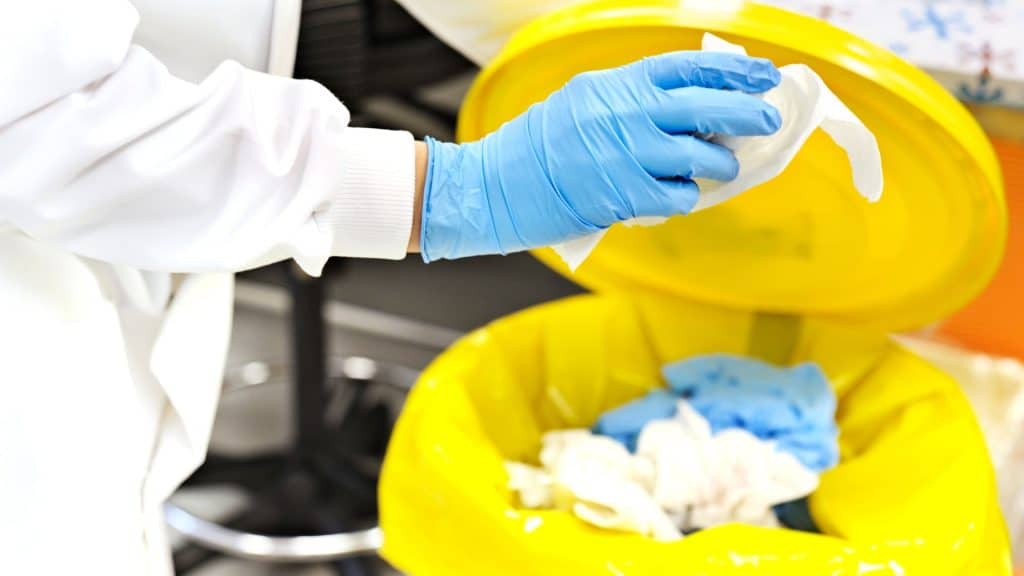When it comes to healthcare, we often focus on the critical roles of doctors, nurses, and medical treatments. But behind the scenes, there’s another essential element that plays a major role in patient safety and public health: proper medical waste disposal. It may not be the most glamorous topic, but it’s one that directly affects infection control—and when done improperly, the consequences can be serious.
What Is Medical Waste?
Medical waste includes anything generated during medical diagnosis, treatment, or immunization that could pose a threat to human health or the environment. This includes items like used needles, bandages, gloves, surgical instruments, pathological waste, and even pharmaceuticals. Some of this waste is harmless, but much of it is potentially infectious or hazardous, especially when it comes in contact with bodily fluids or bloodborne pathogens.
The Infection Risk
Improper disposal of medical waste can lead to the spread of infections within hospitals, clinics, and even communities. When waste is left unsecured or thrown away incorrectly, bacteria, viruses, and other harmful microorganisms can survive long enough to infect others—whether it’s a healthcare worker, waste handler, or unsuspecting member of the public.
For example, used needles that are disposed of improperly can cause needlestick injuries, which may transmit diseases like HIV, Hepatitis B, or Hepatitis C. In some cases, these injuries happen not in the hospital but in places like landfills or public spaces, where medical waste should never end up.
Additionally, contaminated waste that’s not handled according to health and safety standards can lead to outbreaks of hospital-acquired infections (HAIs), placing vulnerable patients at even greater risk.
Environmental Impacts and Public Health
Beyond the immediate danger to individuals, unsafe medical waste disposal can have wider consequences for the environment. Incinerating certain medical waste without proper controls can release harmful toxins into the air. Likewise, waste that ends up in landfills or waterways can contaminate soil and water sources, affecting entire communities.
Safe disposal practices are not just about infection control—they’re also about environmental responsibility and long-term public health.
The Role of Medical Waste Disposal Services
Given the complexity and risks associated with managing medical waste, many healthcare facilities rely on professional medical waste disposal services. These specialized providers ensure that waste is collected, transported, treated, and disposed of according to strict regulations.
Reputable services follow industry best practices and government guidelines, including proper segregation, labeling, and disposal methods for different types of waste. Some offer training programs to help hospital staff stay compliant and knowledgeable about safe disposal protocols. This support is critical, especially for busy healthcare environments where one mistake can put lives at risk.
Best Practices for Infection Prevention
To minimize infection risks, all healthcare providers should follow a few key best practices:
- Proper Segregation: Separate general waste from infectious, hazardous, and sharps waste using color-coded bins and clear labeling.
- Safe Storage: Keep waste in leak-proof, puncture-resistant containers until it’s collected.
- Staff Training: Ensure all staff are trained in proper disposal procedures and understand the risks of non-compliance.
- Routine Audits: Regularly assess waste management procedures to identify and fix any gaps.
- Partner with Professionals: Work with licensed medical waste disposal services to handle transportation and final treatment.
Final Thoughts
Safe medical waste disposal is more than a matter of regulatory compliance—it’s a frontline defense against the spread of infections in and beyond healthcare settings. Every syringe, gauze pad, and contaminated glove needs to be treated with care, not just for the sake of hygiene, but to protect real people: the patients, healthcare workers, and communities that depend on a safe environment.
By committing to proper disposal practices and partnering with trusted medical waste disposal services, healthcare providers can help create a cleaner, safer, and healthier world—one bin at a time.





















